
-
Understanding primary immunodeficiency (PI)

Understanding PI
The more you understand about primary immunodeficiency (PI), the better you can live with the disease or support others in your life with PI. Learn more about PI, including the various diagnoses and treatment options.
-
Living with PI
-
Addressing mental health
-
Explaining your diagnosis
- General care
- Get support
- For parents and guardians
-
Managing workplace issues
- Navigating insurance
-
Traveling safely

Living with PI
Living with primary immunodeficiency (PI) can be challenging, but you’re not alone—many people with PI lead full and active lives. With the right support and resources, you can, too.
-
Addressing mental health
-
Get involved

Get involved
Be a hero for those with PI. Change lives by promoting primary immunodeficiency (PI) awareness and taking action in your community through advocacy, donating, volunteering, or fundraising.
-
Advancing research and clinical care
-
Research Grant Program
-
Consulting immunologist
-
Diagnosing PI
-
Getting prior authorization
-
Clinician education
-
Survey research
-
Participating in clinical trials

Advancing research and clinical care
Whether you’re a clinician, researcher, or an individual with primary immunodeficiency (PI), IDF has resources to help you advance the field. Get details on surveys, grants, and clinical trials.
-
Research Grant Program
As an 18-year-old, Paul Boorack developed a high fever and had trouble breathing. He immediately visited his pediatrician who took a chest X-ray and sent him straight to the hospital. Paul had pneumonia – and stayed in intensive care for seven days.
After that first time, Paul, who has chronic granulomatous disease, knew the symptoms of pneumonia and navigated through eight more bouts of it in his 20’s. He always sought medical care right away, which allowed him to avoid a few hospital stays. However, Paul found that doctors weren’t always receptive to his efforts to be proactive about his health.
Paul recalls one occasion when he called his regular doctor, whom he trusted greatly but who was traveling abroad, and told him that he thought he had pneumonia because he felt a stabbing pain in his chest. That doctor referred Paul to the emergency room where the ER doctors doubted Paul’s claim, but ran tests anyway. Later, the ER doctors apologized when the scans revealed a hole in Paul’s lung.
Paul urges those with CGD to address symptoms as soon as they appear, and he recommends finding responsive and dependable providers.
“The best advice I could give is you have to be your own advocate. You have to be willing to fight for yourself,” said Paul.
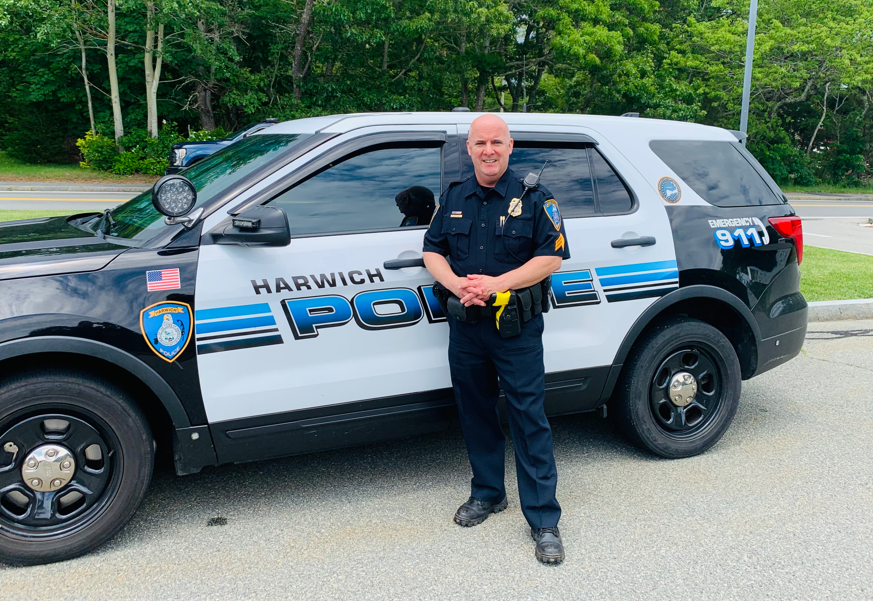
The diagnosis of CGD came early for Paul. As a baby, he failed to gain weight and had swollen lymph nodes. Doctors identified CGD as the reason for his poor health and prescribed the antibiotic Bactrim.
As a young child, he continued to struggle, and he required surgery to remove a granuloma affecting his digestion and steroids to relieve bladder obstruction. But as a teenager his health improved, and he played sports like hockey and baseball.
After he muscled through the nine cases of pneumonia in his 20’s, Paul experienced good health once again, taking Actimmune and Bactrim regularly. He thinks that some of the pneumonias may have come from swimming in a freshwater lake, which he avoids doing these days. He also doesn’t garden and while he can go in the ocean, he prefers pools.
Paul, now 48, remained infection-free up until four years ago, when he began to have trouble with his balance. Extreme dizziness prevented him from walking, driving, and working. He couldn’t stand up and couldn’t walk a straight line.
“I’d put my feet together, and close my eyes, and I’d fall over,” said Paul.
Doctors extracted two abscessed teeth to correct the balance problem, to no avail. Finally, after six weeks, doctors referred Paul to a neurologist.
“This guy can tell in five minutes what’s wrong with me,” said Paul.
After testing, the specialist told him that a nerve in his ear was completely dead as a result of the virus - Paul had vestibular neuritis.
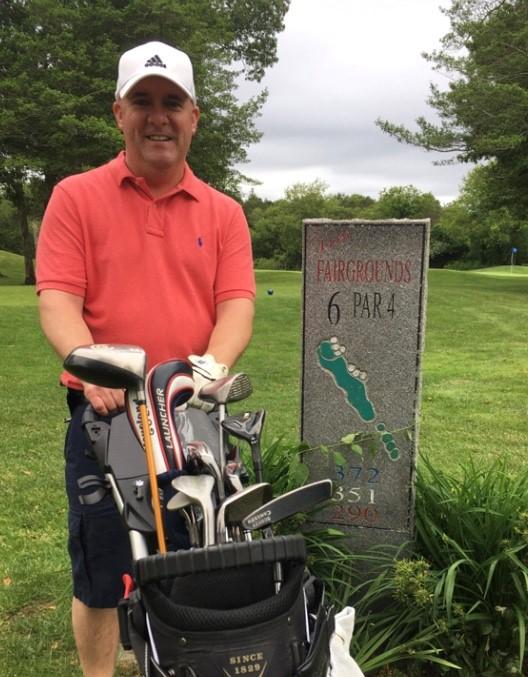
“He said, ‘If you want to sit around and play the victim, you can, but the quicker you get back to doing what you’re used to doing, the quicker you’ll get better,’” said Paul.
The specialist told him that his brain could retrain itself to feel normal again. During his four months out of work, Paul improved his balance through physical therapy. He walked with agility ropes and practiced a host of other balance exercises.
“It helped – and time helped,” said Paul.
For the past four years, Paul has also been plagued by sinus infections which require hospitalization. The first sinus infection lasted for months and caused double vision. Doctors diagnosed Paul with impacted sinuses, and ran bloodwork to perform surgery. The blood work revealed a disturbing surprise – a staph infection. Doctors joked that his only symptom for a blood infection was a stuffy nose.
The most recent sinus infection lasted for six months and required him to have a PICC line put in two different times to control both bacterial and fungal infections.
“I’ve been told quite a bit that, ‘You’re my own little personal science experiment. Nothing about you is normal. Even for those with CGD, this isn’t normal, it’s not supposed to happen. We have those with CGD and then there’s you,’” said Paul.
About to celebrate his 20th year in law enforcement, Paul is a sergeant in the Harwich Police Department in Massachusetts. Married to wife Christine, he is the father of daughter Kylie, 11, and daughter Ainsley, 17.
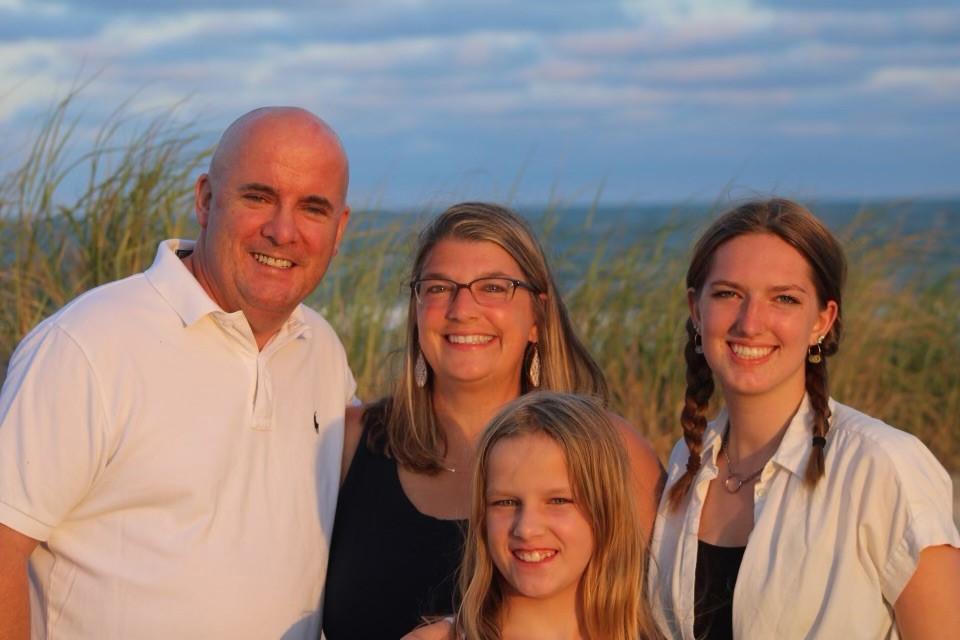
Paul advised that parents of young children should know that their children might not reveal they’re feeling bad because they want to avoid the stress of going to the doctor. But it’s important that any sickness be addressed in a timely fashion.
“The quicker you can get to an infection, the better the chances of recovery,” he said.
Still, parents should also allow their children to participate in the activities they want, within reason.
“Try to let your kids live as normal a life as possible. As long as you’re good about avoiding things you’re supposed to avoid and taking your daily prophylactics, you can have a relatively normal childhood,” said Paul.
Paul said he appreciates the IDF and Living with CGD websites which offer information about new research and developments in treatments for CGD. He’s also participated in IDF Get Connected Groups where he enjoys the sense of community found among others with the same diagnosis.
“It’s wonderful to be able to connect with other people who also have CGD and be able to share different experiences we’ve had over the years,” said Paul.
Related resources
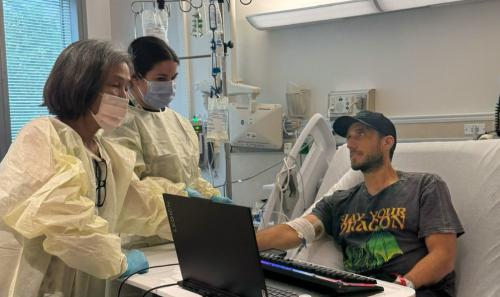
Man with X-linked hyper IgM first-ever to receive novel gene therapy
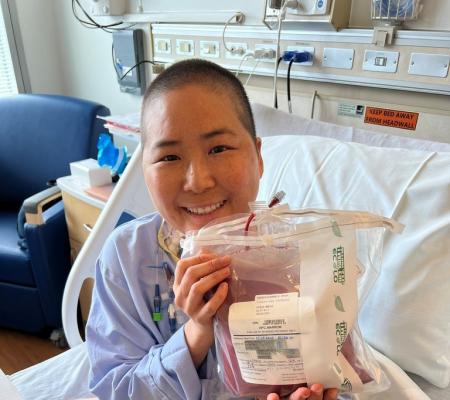
Pharmacist with CVID receives bone marrow transplant

Undiagnosed: Reuben & Sherri Johnson on CGD, chronic illness, and the fight for healthcare
Sign up for updates from IDF
Receive news and helpful resources to your cell phone or inbox. You can change or cancel your subscription at any time.





The Immune Deficiency Foundation improves the diagnosis, treatment, and quality of life for every person affected by primary immunodeficiency.
We foster a community that is connected, engaged, and empowered through advocacy, education, and research.
Combined Charity Campaign | CFC# 66309

